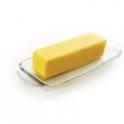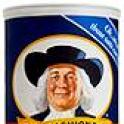If you’re a vegetarian who is looking to increase the overall protein content found in your diet, one source that you’re very likely turning to is tofu. Tofu is one of the most widely used non-animal sources of protein and comes in a variety of different textures and even flavors to help meet any taste and recipe preference.
Let’s have a look at the nutritional content of tofu so you can see for yourself what you’re getting when you dish this up onto your plate.
Major Nutrients Found In Tofu
Tofu doesn’t contain quite as much straight protein as animal protein sources do as evident by the table above, but instead you get a mix of nutrients including proteins, carbohydrates, and dietary fats.
Tofu is also going to be very low in cholesterol and sodium, so is a great option for anyone who is paying attention to these two elements of their diet plan.
Tofu is additionally a good source of phosphorus, copper, calcium as well as manganese, providing you with numerous benefits each time you choose to include it in your diet.
Storing/Selecting
When selecting tofu you’ll have a choice between firm and softer varieties and you should always watch the expiration date before purchasing to be sure that you have the longest shelf-life time available.
Tofu can be frozen if you don’t plan to use it in the near future and once it is opened, tofu should be rinsed and kept in a container covered with water.
For best taste, use within one week from opening.
Eat It With:
Tofu can be eaten in a number of different ways such as scrambled, stir-fried, or added into soups or processed in a blender and made into a breakfast or dessert type of dish.
Burn Off Calories In Tofu
To burn off the number of calories in a serving of tofu you would have to do:
- 30 minutes water volleyball
- 27 minutes mowing the lawn
- 32 minutes billiards


















